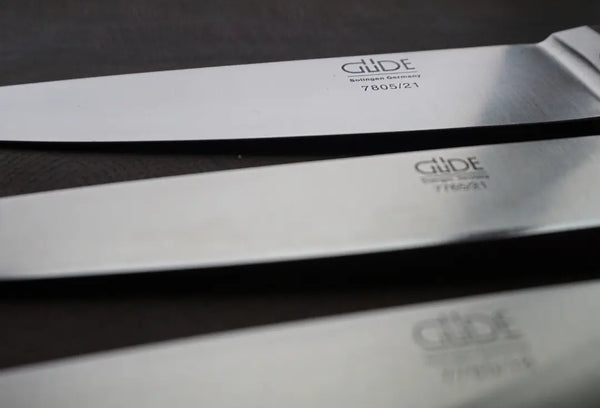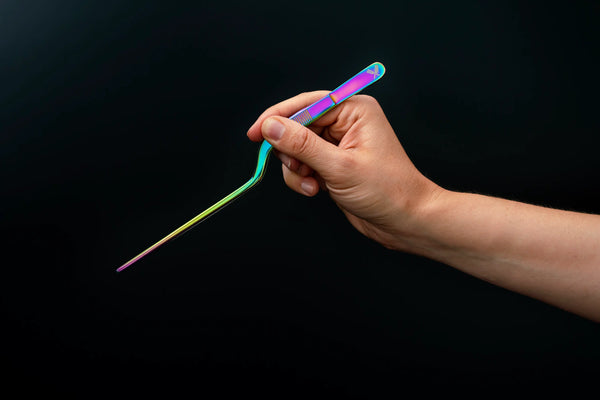
Rockwell hardness – everything you need to know about blade hardness
Rockwell hardness: what it reveals about the quality of your chef's knife
When we're in the business of high-quality knives, we often come across the HRC rating while searching for our next collector's item. Many of you knife enthusiasts will roll your eyes at this, as opinions often differ regarding the optimal Rockwell hardness for a knife. But let's start from the beginning... What does this value actually mean? And is it really relevant when choosing a knife? We've compiled all the facts about Rockwell for you.
“Which knife with which degree of hardness makes the most sense for which purpose?”
What is the Rockwell hardness scale?
HRC is nothing other than the unit of measurement for the surface hardness of a blade. Hardness generally refers to the mechanical resistance that a material, in this case a knife, offers to the mechanical penetration of another body. The hardness of a knife is an important indicator of its wear behavior, as hard knives wear less than soft ones. At the same time, the harder a material, the more easily it breaks during plastic deformation. For knife blades, this means that hard blades stay sharp longer, but also break more easily.
The Rockwell hardness test is a test method that creates transferable comparison values that are measured in the Cone scale.
Hardness Rockwell = Hardness according to Rockwell
(H) Hardness value
(R) Test method = Rockwell
(C) Scale = Cone
How is the degree of hardness determined?
In the Rockwell hardness test, a cone (test specimen) is pressed into the surface layer of the workpiece with a defined pressure and the remaining penetration depth is measured.
Since different test specimens are used for different materials, there are a total of eleven different Rockwell scales – scale C is used for knife blades made of steel.
The hardness value of a material is indicated by a two-digit number, with higher values indicating greater hardness and lower values indicating lesser hardness. The measurement result is indicated by an abbreviation that includes the hardness value (e.g., 60), the test method (Rockwell hardness, HR), and the scale used (for knife blades, C). In this example, this would be 60 HRC.
What significance does the Rockwell value have?
When it comes to high-quality chef's knives, the hardness of the blade is a crucial quality feature. It largely determines how long the edge stays sharp, how resistant the knife is to wear, and how easy it is to sharpen. Rockwell hardness plays a key role here.
The Rockwell hardness (HRC) rating for chef's knives indicates the hardness of the blade , which is a crucial factor for the knife's edge retention, sharpness, and durability. The higher the Rockwell rating, the harder the blade material. This means:
- Edge retention : Harder knives stay sharp longer because they are more resistant to wear. A knife with an HRC rating of 58 or higher will stay sharp longer than a softer knife.
- Sharpness : Harder knives can be ground more finely, resulting in an extremely sharp edge. This is especially important for precise cutting tasks in the kitchen.
- Care and sensitivity : Knives with a high Rockwell hardness (over 60 HRC) are often more brittle and prone to chipping or breaking if used improperly. They require more careful handling and regular maintenance.
- Sharpenability : The higher the Rockwell value, the more difficult the knife is to sharpen. Harder knives generally require higher-quality whetstones and more effort to sharpen.
Overall, the Rockwell value gives a good indication of how long the knife will stay sharp, how robust it is and how much maintenance it will require.
The advantages and disadvantages of the different HRC values
Advantages of a higher Rockwell hardness in knives
- Stays sharp longer : Knives with higher hardness stay sharp longer because the blade is more resistant to wear and deformation.
- Finer edge : Harder knives can be sharpened with a thinner grinding angle, resulting in an extremely fine edge. This is especially important for precision cuts.
Disadvantages of high hardness
- Brittleness : The harder the blade, the more brittle it can become. Harder knives are more prone to breakage or chipping if used improperly.
- More difficult to sharpen : Knives with very high hardness are more difficult to sharpen because the material puts more strain on the whetstone.
What Rockwell hardness should your knife have?
Choosing the right chef's knife always depends on individual preferences and the type of use. Those who value extreme sharpness and long-lasting edge retention should choose a knife with a higher Rockwell hardness, as is common with Japanese models. For everyday, versatile use and more robust cutting tasks, knives with a medium Rockwell hardness, as is often found in European knives, are suitable.
- Softer knives (52-56 HRC) : These knives, often European models ( e.g., this chef's knife from DICK ), are robust, less brittle, and resistant to impact. They are well-suited for versatile tasks and are easier to resharpen. However, they lose their edge faster and require more frequent honing or grinding.
- Harder knives (58-62+ HRC) : Japanese knives often fall into this range. They are extremely sharp, have a fine edge, and retain their sharpness for a long time. The downside is that they are more brittle and more prone to chipping or breaking, especially if used improperly. They are also more difficult to sharpen.
For everyday use, knives in the 55-58 HRC range are a good choice because they are robust and easy to maintain. For precision cutting and those who prefer very sharp blades, knives with a hardness of 58-62 HRC offer a sharper edge but require more care.
It's important that, in addition to considering the Rockwell hardness, you always choose a knife that can do justice to its properties. Cutting up a pumpkin with a paring knife isn't much fun for either the pumpkin or the knife. Check out our blog article " 8 Great Types of Knives That Will Take Your Kitchen to the Next Level " – here we introduce the most common kitchen knives and their uses. And if you still have questions that we haven't been able to answer here, don't worry! We're happy to help and advise you – just contact us anytime, and together we'll find THE right knife.













